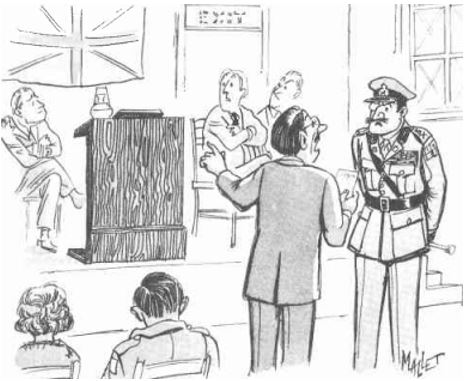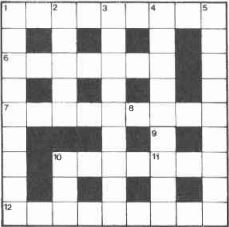

Grammar


Tenses


Present

Present Simple

Present Continuous

Present Perfect

Present Perfect Continuous


Past

Past Simple

Past Continuous

Past Perfect

Past Perfect Continuous


Future

Future Simple

Future Continuous

Future Perfect

Future Perfect Continuous


Parts Of Speech


Nouns

Countable and uncountable nouns

Verbal nouns

Singular and Plural nouns

Proper nouns

Nouns gender

Nouns definition

Concrete nouns

Abstract nouns

Common nouns

Collective nouns

Definition Of Nouns

Animate and Inanimate nouns

Nouns


Verbs

Stative and dynamic verbs

Finite and nonfinite verbs

To be verbs

Transitive and intransitive verbs

Auxiliary verbs

Modal verbs

Regular and irregular verbs

Action verbs

Verbs


Adverbs

Relative adverbs

Interrogative adverbs

Adverbs of time

Adverbs of place

Adverbs of reason

Adverbs of quantity

Adverbs of manner

Adverbs of frequency

Adverbs of affirmation

Adverbs


Adjectives

Quantitative adjective

Proper adjective

Possessive adjective

Numeral adjective

Interrogative adjective

Distributive adjective

Descriptive adjective

Demonstrative adjective


Pronouns

Subject pronoun

Relative pronoun

Reflexive pronoun

Reciprocal pronoun

Possessive pronoun

Personal pronoun

Interrogative pronoun

Indefinite pronoun

Emphatic pronoun

Distributive pronoun

Demonstrative pronoun

Pronouns


Pre Position


Preposition by function

Time preposition

Reason preposition

Possession preposition

Place preposition

Phrases preposition

Origin preposition

Measure preposition

Direction preposition

Contrast preposition

Agent preposition


Preposition by construction

Simple preposition

Phrase preposition

Double preposition

Compound preposition

prepositions


Conjunctions

Subordinating conjunction

Correlative conjunction

Coordinating conjunction

Conjunctive adverbs

conjunctions


Interjections

Express calling interjection

Phrases

Sentences


Grammar Rules

Passive and Active

Preference

Requests and offers

wishes

Be used to

Some and any

Could have done

Describing people

Giving advices

Possession

Comparative and superlative

Giving Reason

Making Suggestions

Apologizing

Forming questions

Since and for

Directions

Obligation

Adverbials

invitation

Articles

Imaginary condition

Zero conditional

First conditional

Second conditional

Third conditional

Reported speech

Demonstratives

Determiners


Linguistics

Phonetics

Phonology

Linguistics fields

Syntax

Morphology

Semantics

pragmatics

History

Writing

Grammar

Phonetics and Phonology

Semiotics


Reading Comprehension

Elementary

Intermediate

Advanced


Teaching Methods

Teaching Strategies

Assessment
Priorities
المؤلف:
L.A Hill
المصدر:
Intermediate Steps To Understanding
الجزء والصفحة:
13-1
1/11/2022
1456

During the Second World War it was difficult to travel by plane, because the seats were needed for important government and army people.
Mr. Brown worked for the government during the war. He was a civilian, and he was doing very secret work, so nobody was allowed to know how important he was except a very few people.
One day he had to fly to Edinburgh to give a lecture to a few top people there, but an important army officer came to the airport at the last minute, and Mr. Brown's seat was given to him, so he was not able to fly to the city to give his lecture.
It was not until he reached the city that the important officer discovered that the man whose seat he had taken was the one whose lecture he had flown to the city to hear.
A Which of these sentences are true (T) and which are false (F)? Write T or F.
- It was difficult for government and army people to find seats on planes during the Second World War.
- Mr. Brown was an important person.
- He wanted to go to Edinburgh by plane one day.
- His seat was given to somebody else because he was late.
- The important officer went to Edinburgh to give a lecture.
- The important officer arrived in time for Mr. Brown's lecture, because he went by plane.
B Answer these questions:
- Why did ordinary people find it difficult to go by plane during the Second World War?
- Whom did Mr. Brown work for?
- Was he in the army?
- What work did he do?
- Why were only very few people allowed to know how important he was?
- Why did he have to fly somewhere one day?
- Why didn't he manage to get there?
- What did the important officer find out when he got to the city?
C Do this puzzle:
Across:
1. Not easy.
6. Put his foot.
7. Not the same.
8. Correct; right.
10. What hats do important officers ...?" "They... hats like this: 
11. If ... the passengers had not come to the airport, Mr. Brown could have got a scat.
12. There was plenty of room for the officer's legs in the plane, so he ... them right out in front of him.

Down:
1. Finds.
2. Not stale
3. The army officer was this, and Mr. Brown was too.
4. The officer put his secret papers ... his seat in the plane.
5. The officer... to the city, but Mr. Brown did not.
9. ... of the passengers had a ticket, but Mr. Brown was not allowed to use his.
10. This story is about the Second World....
 الاكثر قراءة في Intermediate
الاكثر قراءة في Intermediate
 اخر الاخبار
اخر الاخبار
اخبار العتبة العباسية المقدسة

الآخبار الصحية















 قسم الشؤون الفكرية يصدر كتاباً يوثق تاريخ السدانة في العتبة العباسية المقدسة
قسم الشؤون الفكرية يصدر كتاباً يوثق تاريخ السدانة في العتبة العباسية المقدسة "المهمة".. إصدار قصصي يوثّق القصص الفائزة في مسابقة فتوى الدفاع المقدسة للقصة القصيرة
"المهمة".. إصدار قصصي يوثّق القصص الفائزة في مسابقة فتوى الدفاع المقدسة للقصة القصيرة (نوافذ).. إصدار أدبي يوثق القصص الفائزة في مسابقة الإمام العسكري (عليه السلام)
(نوافذ).. إصدار أدبي يوثق القصص الفائزة في مسابقة الإمام العسكري (عليه السلام)


















